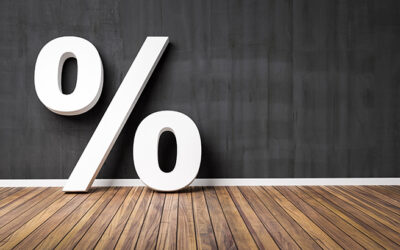There’s More to a Bubble Than Rising Home Prices

What truly causes a housing bubble and the inevitable crash? For the best explanation, let’s go to a person who correctly called the last housing bubble – a year before it happened.
“A bubble requires both overvaluation based on fundamentals and speculation. It is natural to focus on an asset’s fundamental value, but the real key for detecting a bubble is speculation…Speculation tends to chase appreciating assets, and then speculation begets more speculation, until finally, for some reason that will become obvious to all in hindsight, the ‘bubble’ bursts.
I have taken to calling the housing market a ‘bubble’.”
– Bill McBride of Calculated Risk calling the bubble back in April 2005
Where do we stand today regarding speculation?
There are two measurements that are used to determine the speculation in a housing market:
1. The number of homes purchased by an investor and
2. The number of homes being flipped (resold within a twelve-month period)
As compared to 2005, investor purchases are down dramatically (from 23% to 13%) and so is flipping (from 8.2% to 5.7%). McBride explains:
“There is currently some flipping activity, but this is more the normal type of flipping (buy, improve and then sell). Back in 2005, people were just buying homes and letting them sit vacant – and then selling without significant improvements. Classic speculation.”
What are the experts saying about speculation in today’s market?
DSNews recently ran an article which asked two economists to compare the speculation in today’s market to that in 2005-2007. Here is what they said:
Dr. Eddie Seiler, Chief Housing Economist at Summit Consulting:
“The speculative ‘flipping mania’ of 2006 is absent from most metro areas.”
Tian Liu, Chief Economist of Genworth Mortgage Insurance:
“The nature of housing demand is different as well, with more potential homeowners and far fewer speculators in the housing market compared to the 2005-2007 period.”
And what does McBride, who called the last housing bubble, think about today’s real estate market?
Sixty days ago, he explained:
“In 2005, people were just buying homes and letting them sit vacant – and then selling without significant improvements. Classic speculation. And even more dangerous during the bubble was the excessive use of leverage (all those poor-quality loans). Currently lending standards are decent, and loan quality is excellent…
I wouldn’t call house prices a bubble – and I don’t expect house prices to decline nationally like during the bust.”
Bottom Line
Speculation is a major element of the housing bubble formula. Right now, there are not elevated percentages of investors and house flippers. Therefore, there is not an elevated rate of speculation.
To view original article, please visit Keeping Current Matters.
The Average Homeowner Gained More Than $55K in Equity over the Past Year
The equity you’re gaining in today’s market, may be what you need to cover a large portion of the down payment on your next home.
Don’t Get Caught Off Guard by Closing Costs
The best way to understand what you’ll need at the closing table is to work with a team of trusted real estate professionals.
This Spring Presents Sellers with a Golden Opportunity
Home prices have been skyrocketing in recent years because of the imbalance of supply and demand.
How to Navigate a Market Where Multiple Offers Is the New Normal
To help you navigate bidding wars with multiple offers, an expert real estate advisor is key.
How Global Uncertainty Is Impacting Mortgage Rates
Rates will likely fluctuate in the short-term based on what’s happening globally.
Why It’s Critical to Price Your House Right
There are several factors that go into pricing your house and balancing them is the key.
An Expert Advisor Will Give You the Best Advice in Today’s Market
It’s critical to have an expert on your side who’s well versed in navigating today’s rapidly changing market.
Millennials: Do You Need a Home with More Space?
The past two years brought about significant changes for many people, and homeowners are reevaluating what they truly need in a home.
The Perks of Owning More Than One Home
With the rise in remote work, more people are reconsidering where they want to live and second homes give them greater flexibility.
Real Estate Voted the Best Investment Eight Years in a Row
As a homeowner, your house is an asset that typically increases in value over time, even during inflation.









